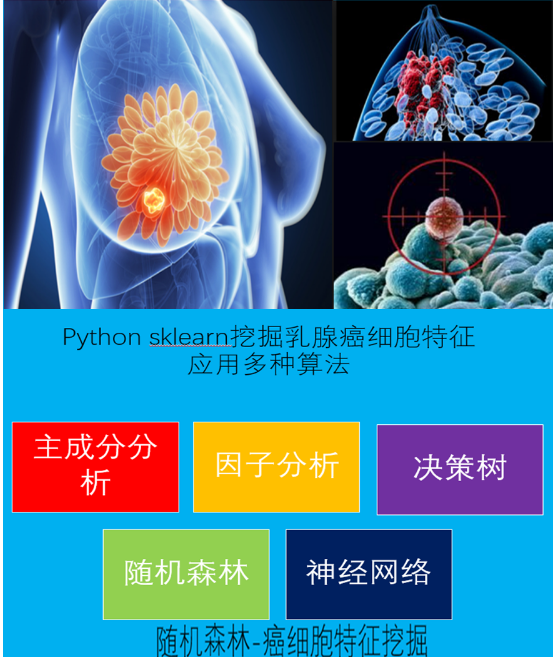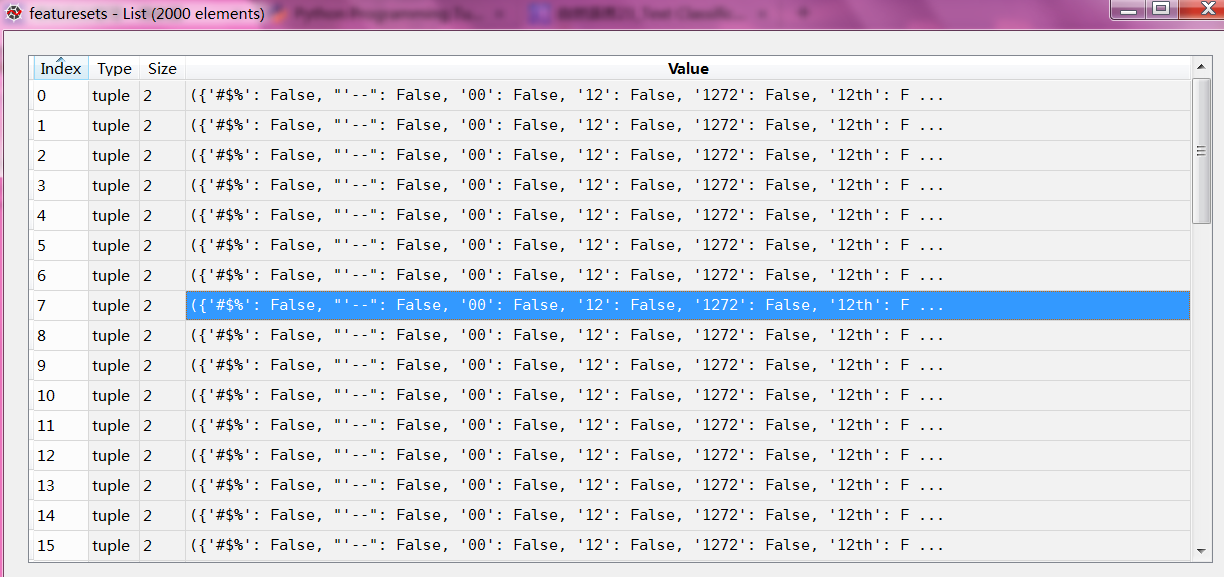(博客主亲自录制视频教程)

https://www.pythonprogramming.net/words-as-features-nltk-tutorial/
Converting words to Features with NLTK
In this tutorial, we're going to be building off the previous video and compiling feature lists of words from positive reviews and words from the negative reviews to hopefully see trends in specific types of words in positive or negative reviews.
To start, our code:
import nltkimport randomfrom nltk.corpus import movie_reviews documents = [(list(movie_reviews.words(fileid)), category) for category in movie_reviews.categories() for fileid in movie_reviews.fileids(category)] random.shuffle(documents) all_words = [] for w in movie_reviews.words(): all_words.append(w.lower()) all_words = nltk.FreqDist(all_words) word_features = list(all_words.keys())[:3000]
Mostly the same as before, only with now a new variable, word_features, which contains the top 3,000 most common words. Next, we're going to build a quick function that will find these top 3,000 words in our positive and negative documents, marking their presence as either positive or negative:
def find_features(document): words = set(document) features = {} for w in word_features: features[w] = (w in words) return features Next, we can print one feature set like:
print((find_features(movie_reviews.words('neg/cv000_29416.txt')))) Then we can do this for all of our documents, saving the feature existence booleans and their respective positive or negative categories by doing:
featuresets = [(find_features(rev), category) for (rev, category) in documents]
Awesome, now that we have our features and labels, what is next? Typically the next step is to go ahead and train an algorithm, then test it. So, let's go ahead and do that, starting with the Naive Bayes classifier in the next tutorial!
# -*- coding: utf-8 -*-"""Created on Sun Dec 4 09:27:48 2016@author: daxiong"""import nltkimport randomfrom nltk.corpus import movie_reviewsdocuments = [(list(movie_reviews.words(fileid)), category) for category in movie_reviews.categories() for fileid in movie_reviews.fileids(category)]random.shuffle(documents)all_words = []for w in movie_reviews.words(): all_words.append(w.lower())#dict_allWords是一个字典,存储所有文字的频率分布dict_allWords = nltk.FreqDist(all_words)#字典keys()列出所有单词,[:3000]表示列出前三千文字word_features = list(dict_allWords.keys())[:3000]''' 'combating', 'mouthing', 'markings', 'directon', 'ppk', 'vanishing', 'victories', 'huddleston', ...]'''def find_features(document): words = set(document) features = {} for w in word_features: features[w] = (w in words) return featureswords=movie_reviews.words('neg/cv000_29416.txt')'''Out[78]: ['plot', ':', 'two', 'teen', 'couples', 'go', 'to', ...]type(words)Out[65]: nltk.corpus.reader.util.StreamBackedCorpusView'''#去重,words1为集合形式words1 = set(words)'''words1{'!', '"', '&', "'", '(', ')',....... 'witch', 'with', 'world', 'would', 'wrapped', 'write', 'world', 'would', 'wrapped', 'write', 'years', 'you', 'your'}'''features = {}#victories单词不在words1,输出false('victories' in words1)'''Out[73]: False ''' features['victories'] = ('victories' in words1)'''featuresOut[75]: {'victories': False}'''print((find_features(movie_reviews.words('neg/cv000_29416.txt'))))''''schwarz': False, 'supervisors': False, 'geyser': False, 'site': False, 'fevered': False, 'acknowledged': False, 'ronald': False, 'wroth': False, 'degredation': False, ...}'''featuresets = [(find_features(rev), category) for (rev, category) in documents]
featuresets 特征集合一共有2000个文件,每个文件是一个元组,元组包含字典(“glory”:False)和neg/pos分类


